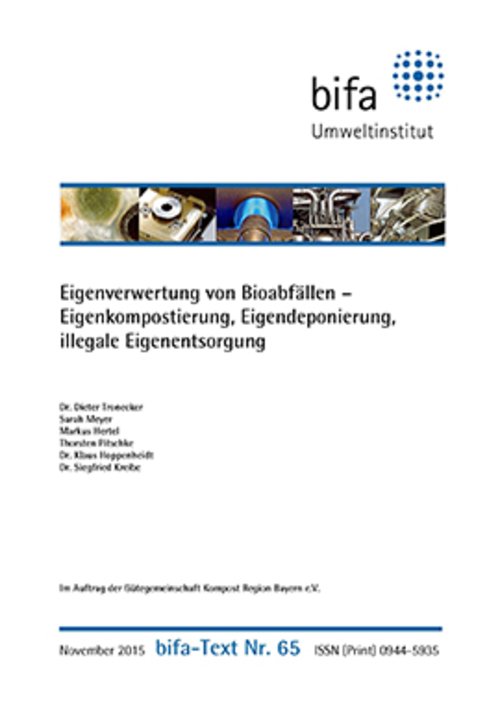Biowaste recovery at source
Implementation of local authorities' legal obligation to collect biowaste separately also affects biowaste which was previously not input into the municipal waste management systems but was used for recovery at source and illegal disposal at source.
The study dealt with the following partial aspects of the topic of biowaste recovery at source:
- Demarcation and definition of various residual biogenic materials,
- Legal basis of recovery at source,
- Potential quantity of biogenic waste and recovery at source,
- At-source composting in practice: advantages, disadvantages and limits,
- Evaluation of recovery at source from a life cycle assessment point of view and effects that cannot be covered by the life cycle assessment and
- Measures by public waste management organisations relating to at-source composting and targeted material flow control.
To this end current publications were searched and evaluated and experts in the form of all kinds of different stakeholders were consulted. In addition, the findings of projects already completed by bifa were incorporated.
As a result of the study, measures and options of the public waste disposal organisations in handling at-source composting are described. Relevant practical facts for citizens were summarised in a flyer (called "Einblick" or insight) and presented succinctly.
bifa-Text No. 65 "Eigenverwertung von Bioabfällen – Eigenkompostierung, Eigendeponierung, illegale Eigenentsorgung" (Biowaste Recovery At Source - At-Source Composting, At-Source Landfill, Illegal At-Source Disposal) contains detailed documentation of the background and relationships. This text can be purchased now from www.bifa.de (price: euro 11.50 + VAT + p&p).
![[Translate to Englisch:] Placeholder](/fileadmin/_processed_/f/4/csm_Header_Presse_d565a61df7.jpg)
